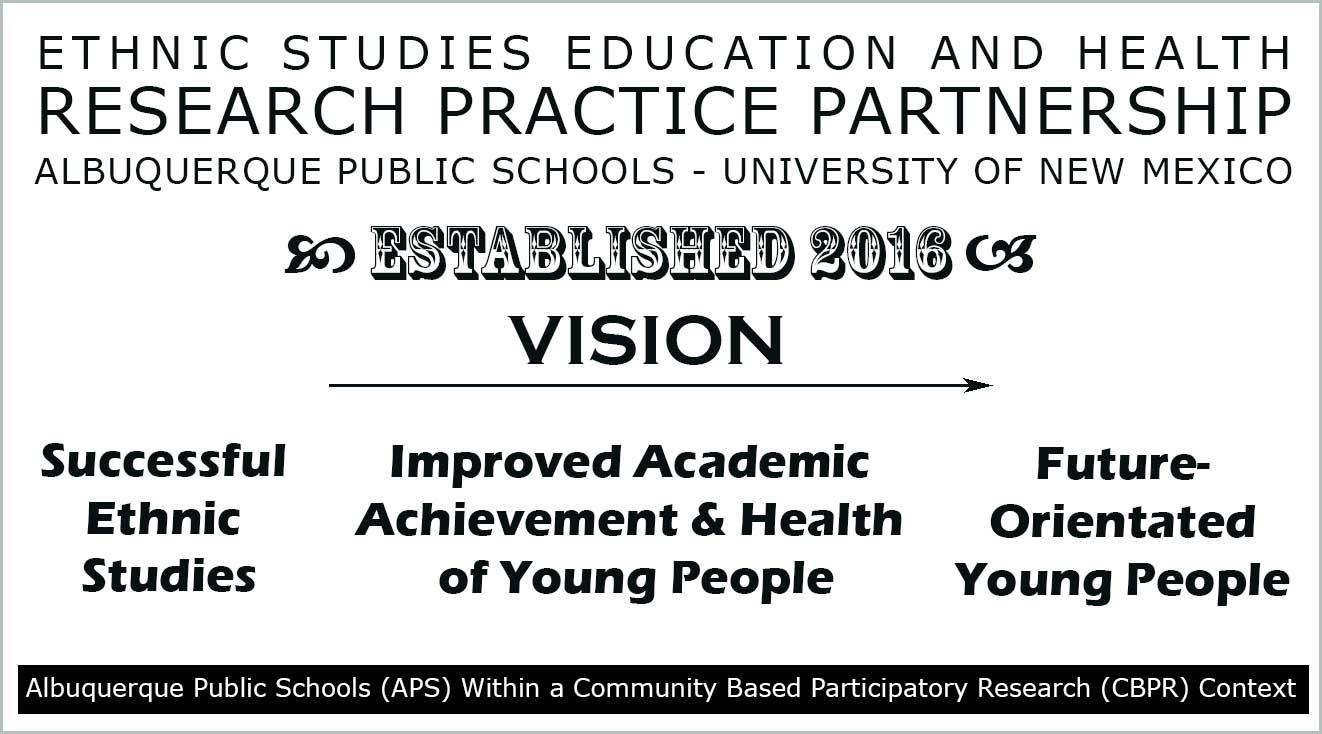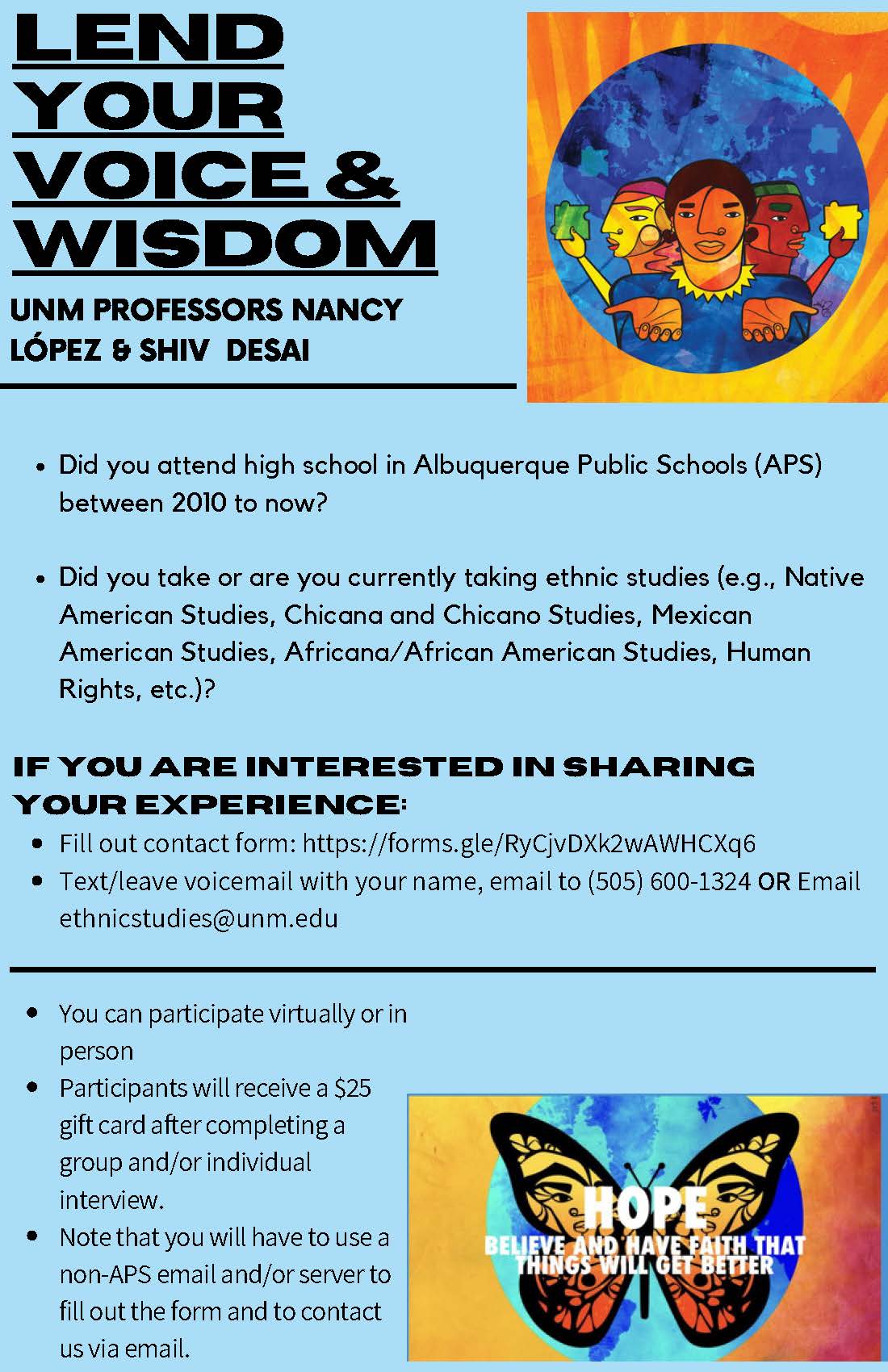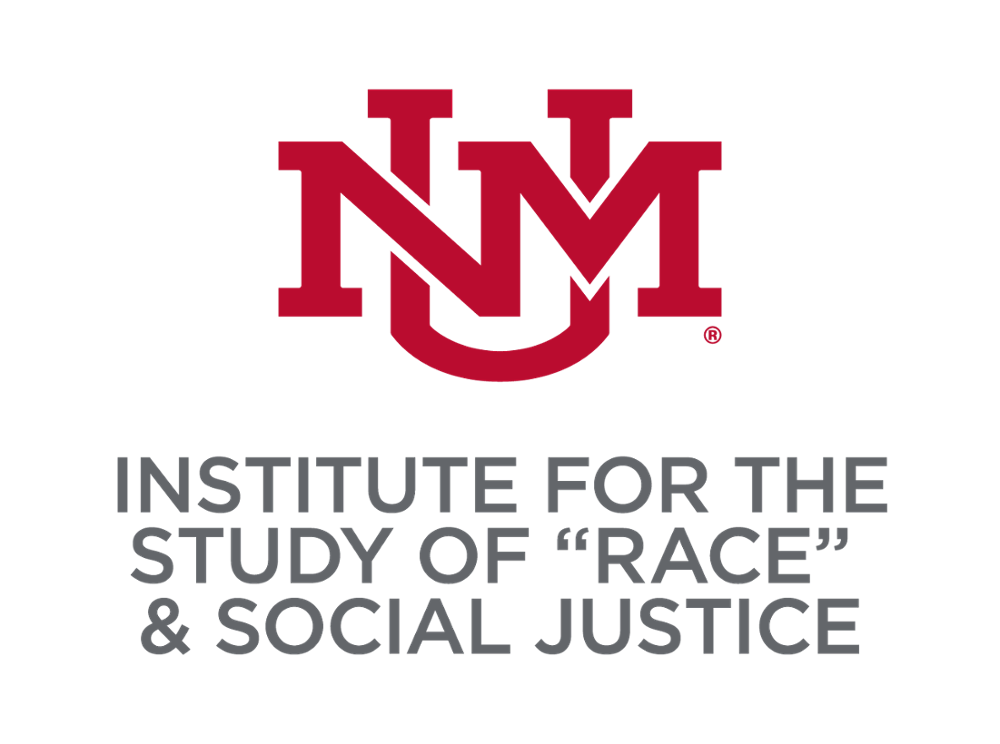Resources for Racial Equity: Ethnic Studies in K-20
- Hewlett Foundation Ethnic Studies Student Voice
- NSF Project Abstract Proposal
- RWJF Employing Intersectionality in Revising OMB Standards for Collecting
Antiracist and Culturally Responsive Teaching
In the News
- Ninth-grade ethnic studies helped students for years, Stanford researchers find, (Stanford Graduate School of Education, Sept 6, 2021)
- Beyond In the Heights, colorism persists, rarely addressed, (AP News, June 18, 2021)
- Trump's White House says critical race theory is anti-American. Here's the truth (Think, September 11, 2020)
- An Open Letter: Scientists and Racial Justice (The Scientist, June 19, 2020)
- Push for Ethnic Studies in Schools Faces a Dilemma: Whose Stories to Tell (NY Times July 17, 2019)
- I wanted to know what white men thought about their privilege. So I asked. (NY Times July 17, 2019)
- Want to be less racist? Move to Hawaii. (NY Times June 6, 2019)
- Call for submissions for Special Issue "What’s Your “Street Race?” Cartographies and Ontologies of “Race” and the Future of Knowledge Production on Inequality, Resistance and Social Justice" (Geneology)
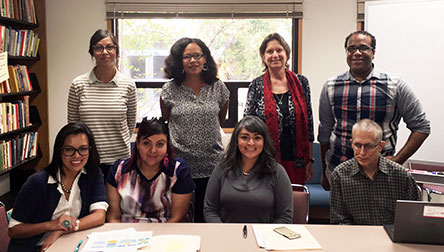
Ethnic Studies Education and Health (ESEH) Research Partnership
Top: Daisy Dominguez, Nancy López, Nina Wallerstein, Kasim Ortiz
Bottom: Machienvee Villanueva Lammeny, Emily Castillo, Meriah Heredia-Griego, Tom Dauphinee
Not pictured: Dr. Mia Sosa-Provencio, Dr. Shiv Desai, Mallory Resendiz, and Myrella Gonzalez, as well as APS Adminstrators and Teachers
ETHNIC STUDIES EDUCATION AND HEALTH (ESEH) RESEARCH PRACTICE PARTNERSHIP (RPP) ALBUQUERQUE PUBLIC SCHOOLS (APS)-UNIVERSITY OF NEW MEXICO
(established 2016)
 ATF Motion to Support K-12 Ethnic Studies in APS: by Jeanette Jimenez (Emerson ES), Zayda Raimundi (Madison MS) and Rosemary Hood (La Cueva HS) on behalf of the ATF/Community Task Force on Ethnic Studies Discussion item-December 4, 2018
ATF Motion to Support K-12 Ethnic Studies in APS: by Jeanette Jimenez (Emerson ES), Zayda Raimundi (Madison MS) and Rosemary Hood (La Cueva HS) on behalf of the ATF/Community Task Force on Ethnic Studies Discussion item-December 4, 2018- Albuquerque Public High Schools Ethnic Studies Implementation Policy Brief (2018): A presentation authored by a team of interdepartmental UNM researchers Andrea Abeita (LLSS), Emily Castillo (Sociology), Magda Dathe (Community Engagement Center), Dr. Shiv Desai (TEELP), Myrella Gonzalez (Sociology), Dr. Nancy López (Sociology), Omkulthoom Qassem (Community Engagement Center), and Dr. Mia Sosa Provencio (Latin American and Iberian Institute)
- Albuquerque Public High Schools Ethnic Studies Implementation Policy Brief (2018)
- Albuquerque Public Schools Dashboard - Data on Demographics, Enrollment, College Readiness, Parent Involvement, and more
- VIDEO: Creating Vision Statement for Ethnic Studies Community Based Participatory Research
- POV on PBS: POV offers free resources for educators, including 200+ online film clips connected to 100+ standards-aligned lesson plans, discussion guides and reading lists. Registered educators can use any of 80+ full-length films in the classroom for free through our documentary lending library.
- San Francisco Public Schools Ethnic Studies Course Implementation Brief
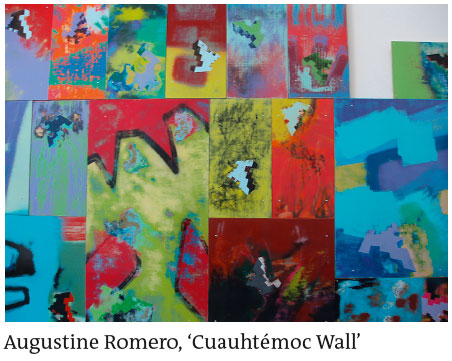
- A Tool for Conceptualizing and Visualizing Intersectionality
- Resources for Ethnic Studies
- Short Reading List for APS Ethnic Studies
- Supporting Organizations for APS ethnic studies initiative
- Ethnic Studies in APS Flyer for Teachers
- Ethnic Studies in APS Flyer for Students
- Ethnic Studies Model Curriculum
- Feb 1 2022 - Statement against HB 91 Anti-CRT Bill in New Mexico
- Call for Manuscripts -- Trans-American Studies: Social Justice, Identity, and Public Policy
- Cultivating Inclusion to Praxis What We Preach
- Dr. Julia So Sociologists for Women in Society 2017 Winter Meeting Presentation Resources for Raising Intersectionality Awareness
American Sociological Association Statement Condemning Anti-Asian Racism
March 18, 2021 -- Sociological knowledge informs that racism stems from deep structural and cultural roots. For it to be eliminated, those deep and varied roots must be recognized and addressed. As a social scientific organization, we call upon all Americans—especially our political, economic, and community leaders—to work diligently to address anti-Asian racism and immediately seek measures to eradicate it. We remind the nation that silence ends up enabling racism. We must speak out against this racism based on our scientific expertise and moral compass.
American College of Physicians Position Statement on Recognizing Hate Crimes as a Public Health Issue
- New position statement from American College of Physicians stating that hate crimes are a public health issue and affirming support for anti-discrimination legislation
- The CNN story includes interviews with many in public health, including Dr. Georges Benjamin (Exec Director of APHA), who talks about the work APHA has been doing on opposing racism and explaining why it is a public health issue
Resources For Studies of Race in Postsecondary Education
- Inside Graduate Admissions: Merit, Diversity, and Faculty Gatekeeping (Julie R. Posselt, 2016)
- Pedigree: How Elite Students Get Elite Jobs (Lauren A. Rivera, 2015)
- Academic Racism: The Repression of Marginalized Voices in Academia (Article, Miguel A. DeLaTorre, 2018)
- Toxic Ivory Towers: The Consequences of Work Stress on Underrepresented Minority Faculty (Ruth Enid Zambrana, 2018)
- American Sociological Association (ASA) Contexts, In Brief (Journal, June 2018)
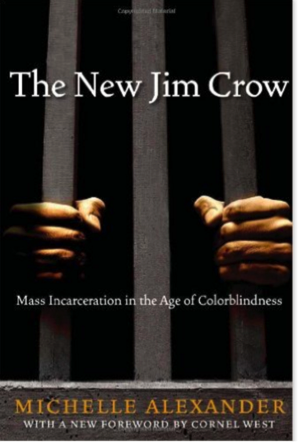 Student Demands
Student Demands- University of North Carolina November 19, 2015
- Abolish the Racist Seal, UNM April 29, 2016
- Black Liberation Collective
Ethnic Studies Suggested Readings
- Pedagogy of the Oppressed. Paulo Freire
- The Revolt of the Cockroach People. Oscar Zeta Acosta
- Between the World and Me. Ta-Nehisi Coates
- The New Jim Crow: Mass Incarceration in the Age of Colorblindness. Michelle Alexander
- Parable of the Sower. Octavia E. Butler
- A Young People's History of the United States, Volume 1: Columbus to the Spanish-American War. Howard Zinn
- A Young People's History of the United States, Volume 2: Class Struggle to the War on Terror. Howard Zinn
- A Different Mirror for Young People: A History of Multicultural America. Ronald Takaki
- Seeing Race Again: Countering Colorblindness across the Disciplines. Kimberlé Williams Crenshaw et al
- Culturally Responsive Teaching in the Online Classroom. Rhodes, C. M., & Schmidt, S. W.
Keys to a Successful Dialogue
Assistant Professor Department of Teacher Education, Educational Leadership and Policy, Institute Advisory Board
It is important for participants enrolled in this course to understand the following: In order to explore and engage the various topics explored through this course, it is important to collectively create a safe and supportive environment, one that is amicable yet critical (of ideas that surface in the readings as well as those that surface through discussion). Instead of defending or attacking a belief system, participants should do the following:
- Stop and critically reflect on their points of disagreement
- Consider her/his own position
- Seek to understand the perspective of colleagues
- Pursue empathizing with colleagues
- Validate it as honest
- Ask questions to better understand
- Accept the differences in ideologies and stances
- While remaining open to learning from other perspectives (even if it is not this time but maybe next)
RACE AND PEDAGOGY INTERDISCIPLINARY APPROACHES
We need your help. Currently the Institute is working toward finding ways to fund interdisciplinary courses and programming on race and social justice. We are an all volunteer labor of love and we have no operating funds. Please consider donating to the Institute for the Study of “Race” and Social Justice via our the UNM Foundation Fund.
Also, please email other suggested readings, guidelines for dialogue & videos on race and pedagogy to: race@unm.edu
Race and Social Justice Interdisciplinary Insights: May 2019
AFRICANA
- Hooks, B. 2014. Teaching to Transgress. Routledge
EDUCATION
- Freire, P. 2000. Pedagogy of the Oppressed. Bloomsbury Publishing
- Leonardo, Zeus and Ronald K. Porter. 2010. "Pedagogy of fear: Toward a Fanonian theory of ‘safety’ in race dialogue." Race Ethnicity and Education, 13(2): 139-157
PSYCHOLOGY
- Sue, D. W., Rivera, D. P., Watkins, N. L., Kim, R. H., Kim, S., & Williams, C. D. 2011. Racial dialogues: challenges faculty of color face in the classroom. Cultural Diversity and Ethnic Minority Psychology, 17(3), 331
- Sue, D. W., Rivera, D. P., Capodilupo, C. M., Lin, A. I., & Torino, G. C. 2010. Racial dialogues and White trainee fears: Implications for education and training. Cultural Diversity and Ethnic Minority Psychology, 16(2), 206
- Sue, D.W, Torino, G. C., Capodilupo, C. M., Rivera, D. P., & Lin, A. I. 2009. How White faculty perceive and react to difficult dialogues on race: Implications for education and training. The Counseling Psychologist, 37(8), 1090-1115
- Venner, K. L., & Verney, S. P. 2015. Motivational interviewing: Reduce student reluctance and increase engagement in learning multicultural concepts. Professional Psychology: Research and Practice, 46(2), 116
SOCIOLOGY
- Jason, Kendra and Sarah Nell Epplen. 2016. “Interrogating Ourselves in a Racialized World: Using Personal Experience to Improve Students’ Understanding of Racism.” Sociology of Race and Ethnicity, 2(4): 584-590
- Bailey, Amy Kate. Jason Leiker, Andrew Gutierrez, Eric C. Larson, and Serena Mitchell. 2015. “Memorializing Lynch Victims: Countering Colorblind Ideologies with Experiential Learning.” Sociology of Race and Ethnicity, 1 (3): 454-459
- Rivera, L. A., & Tilcsik, A. (2019). Scaling Down Inequality: Rating Scales, Gender Bias, and the Architecture of Evaluation. American Sociological Review, 84(2), 248–274. https://doi.org/10.1177/0003122419833601
- Strmic-Pawl, Hephzibah. 2015. “More Than a Knapsack: The White Supremacy Flower as a New Model for Teaching Racism.” Sociology of Race and Ethnicity, 1(1:192-197)
- Valiente-Neighbours, Jimiliz. 2015. Beyond “Post-Race Paralysis”: Creating Critical Dialogue on Race in the Obama Era. Sociology of Race and Ethnicity, 1(2): 331-335
WOMEN & GENDER STUDIES
- Weber, Lynn 1990. Fostering positive race, class, and gender dynamics in the classroom. Women's Studies Quarterly, 18(1/2), 126-134
WHITENESS & RACE
- Scene on Radio. Seeing White series. Retrieved from https://www.sceneonradio.org/seeing-white/
VIDEO RESOURCES
The UNM Race and Social Justice Academic Affairs Faculty Fellows created a group of scenarios
- Content, Not Accent:
- Translanguaging
- Microaggressions
- Microaggressions 2
- Instructor Mindset
- A conversation about culture
- Help me make friends
- Getting the names wrong
- Getting the names right
- What are you wearing today?
- Let me tell you what to wear today
- All in one playlist
UNM Division for Equity & Inclusion
Climate in COVID Webinars & Town Hall: Addressing Anti-Blackness at UNM
Additional Information
- AERA Knowledge Forum - Children From Underserved Minority Backgrounds Have Strengths for Learning
- AfroMundo- Utilize Arts and the Humanities to shift dominant narratives, build radical solidarity, and promote the diversity of Afro-Latinx, Afro-Indigenous, Afro-Asian, and beyond, cultures, histories and identities
- American Educational Research Association (AERA) Statement in Support of Anti-Racist Education
- The Aspen Institute - to foster values-based leadership, encouraging individuals to reflect on the ideals and ideas that define a good society, and to provide a neutral and balanced venue for discussing and acting on critical issues
- About RACE: A Public Education Project
- American Anthropological Association (1998) Race Statement
- American Association of Physical Anthropologists (1996) Race Statement
- Casa Xelaj - offers classes and programs that are designed to promote cross-cultural understanding
- Center for Anti-Oppressive Education - works to prepare resources for members of educational communities interested in creating and engaging in forms of education that challenge multiple oppressions
- Center for Reducing Health Disparities at Case Western Reserve University - Working to reduce health disparities through research, education, and community partnerships
- Center for Social Inclusion - For nearly a decade, the Center for Social Inclusion has worked to translate America's changing demographics into a new source of power and prosperity
- Compendium of Cultural Competence Initiatives in Health Care - prepared by the Henry J. Kaiser Family Foundation in response to the many requests from the media and others to define cultural competency and identify efforts underway in this emerging field. Included are brief definitions for major terms, organizational descriptions of initiatives and a list of experts in the field
- Courageous Conversation Academy- A new online learning platform designed to offer differentiated opportunities to learn, practice, and apply the Courageous Conversation Protocol and Framework in environment-specific contexts across organizational sectors. The Courageous Conversation Academy™ is also a vehicle for creating expanded networks in a global community of racial equity leaders and practitioners
- Cross Cultural Health Care Program - serves as a bridge between communities and health care institutions to ensure full access to quality health care that is culturally and linguistically appropriate. The website contains definitions, tools and other resources
- Cultural Competence Training Template - is a suggested outline for a half-day training that teaches the basics about cultural competency to health professionals, whether they are students or experienced clinicians, developed by the UCSF Center for the Health Professions
- Cultural Diversity: A Guide for Health Professional - published by Queensland Health, this guide features community profiles on Australian South Sea Islander, Bosnian Muslims, Cambodian, Chinese, Croatians, Greeks, Hmong, Italian, Latin Americans, Muslims from West Africa, Philippines, Samoans and Tongans, Serbians, Socialist Republic of Yugoslavia, Vietnamese, Child and Youth, Torture and Trauma and Women
- Cultural Profiles - provide generalized profiles on African Americans, Asians, Hispanics, Middle Easterners and Russians
- Division for Equity and Inclusion at UNM Statement on Combating Race & Sex Stereotyping Executive Order
- Ethnomed - contains information about cultural beliefs, medical issues and other related issues pertinent to the health care of recent immigrants to the US, many of whom are refugees fleeing war-torn parts of the world. Culture-specific resources address such diverse cultures as Amharic, Cambodian, Chinese, Mexican, Somali and Vietnamese, among others
- Equity and Inclusion Effective Practices and Responsive Strategies:Guidebook for College and University Leaders
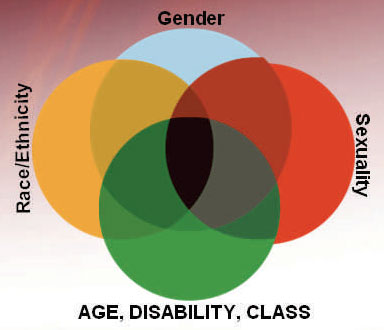 Hablamos Juntos - is an $18.5 million Robert Wood Johnson Foundation funded program committed to improving health care access for Latinos with limited English proficiency.
Hablamos Juntos - is an $18.5 million Robert Wood Johnson Foundation funded program committed to improving health care access for Latinos with limited English proficiency.- Improving Public Education in New Mexico: How the Yazzie/Martinez Ruling Presents an Opportunity
- Intersectionality Primer
- The Kirwan Institute partners with people, communities, and institutions worldwide to think about, talk about, and engage issues of race and ethnicity in ways that create and expand opportunity for all
- Knapsack Institute out of the University of Colorado, Colorado Springs is a summer institute focused on inequality and social justice
- The Law Deans Antiracist Clearinghouse
- Latinoisnotarace.info
- The Long, Bloody Strike for Ethnic Studies (National Public Radio, August 2020)
- "Measuring the Diverging Components of Race in a Multiracial America" conference
- National Council on Interpreting in Health Care - is a multidisciplinary organization whose mission is to promote culturally competent professional medical interpreting as a means to support equal access to health care for individuals with limited English proficiency
- New Mexico CARES Health Disparities Center - The New Mexico Center for the Advancement of Research Engagement and Science on Health Disparities (NM CARES Health Disparities Center) is a National Institutes of Health and National Institute for Minority Health and Health Disparities funded center at the University of New Mexico
- The People's Institute for Survival and Beyond -- Focuses on understanding what racism is, where it comes from, how it functions, why it persists and how it can be undone. Our workshops utilize a systemic approach that emphasizes learning from history, developing leadership, maintaining accountability to communities, creating networks, and undoing internalized racism
- Providers Guide to Quality & Culture - this web site is designed to assist health care organizations in providing high quality, culturally competent services to multi-ethnic populations. It contains definitions, self-assessment tools and other resources
- Race and Racism in the United States: A Sociological Guide for the Public by the American Sociological Association January 2023
- Stranding Together Against Racism: Building on Our Common Heritage
- Tolerance.org - encourages people from all walks of life to "fight hate and promote tolerance" by providing resources for parents, teachers, and kids.
- Understanding Prejudice - has more than 2,000 prejudice-related links, searchable databases of social justice organizations and prejudice researchers, teaching resources, and interactive exercises
- What Is Cultural and Linguistic Competence? - this Agency for Healthcare Research and Quality website contains definitions and links to guides on Planning Culturally and Linguistically Appropriate Services and Providing Oral Linguistic Services
- What is "Street Race"?
- William T. Grant Foundation Can Ethnic Studies Courses Reduce Racial Inequality as They Scale?
